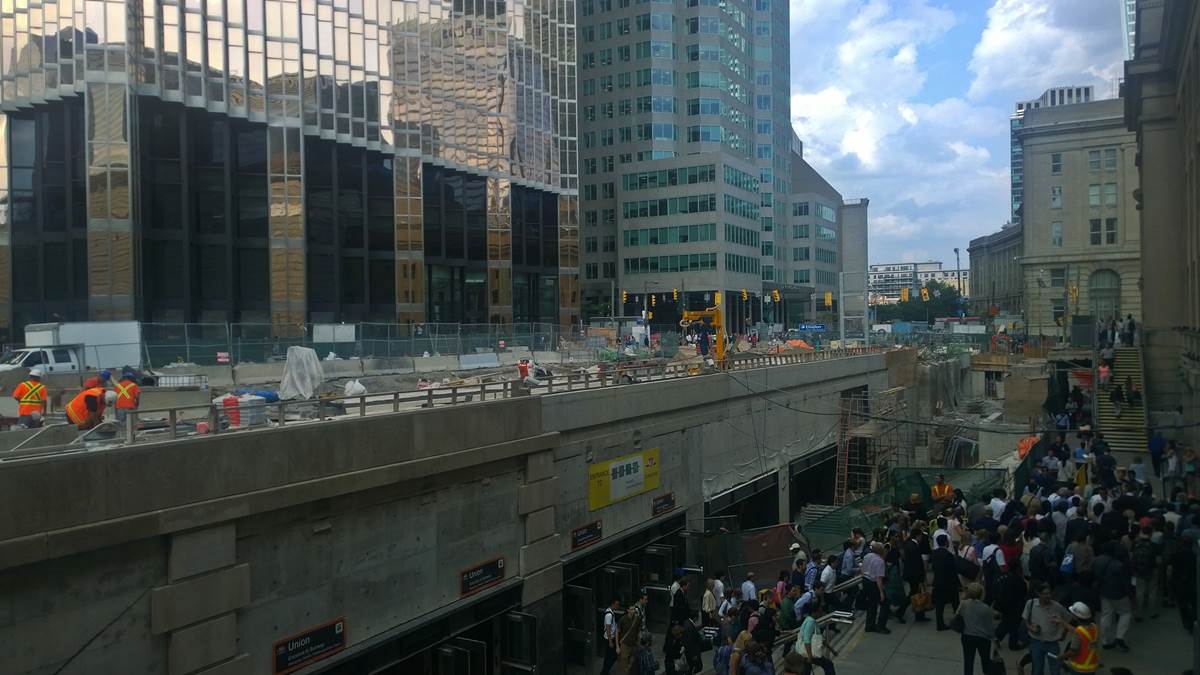Toronto Income Property Newsletter – August 2014
I trust that all of you are enjoying the summer. The real estate market generally gets a little slower in July and August, with more properties being offered for sale after Labour Day when summer holidays finish. The residential income property market generally tends to follow the trends of the overall housing market. I have been closely monitoring all the duplexes and triplexes that have hit the market in the past few weeks, and it seems that this summer is no different than in past years. As a rule I can always use more inventory with multiple kitchens, but I do expect I more to come next month. If you are currently looking to buy an investment property with me, it is likely that our search will take us into September.
I hope that you all enjoy this upcoming long weekend and have a chance to do something outdoors to enjoy this amazing weather.
-P.A.
Land Transfer Tax Reform?
In the City of Toronto, we are subject to two land transfer taxes when purchasing real property. The municipal tax which was added several years ago has become a strong revenue generator for the city. We are the only city in North America which has this double taxation structure. As such, it has been criticized almost from the moment it was initiated. Many have been calling for its removal or at least, a reduction of the rate. The Toronto Real Estate Board says that a “strong majority” of Torontonians (69%) support a phase-out of the tax. That percentage has grown by four points since last May.
TREB has been crusading against the tax since it was introduced back in 2006. The realtors’ main ground for opposing it is that it will keep people from buying homes in the city. That this has not happened does not deter TREB: in its polling of the people, the people keep saying that because of the land transfer tax they are “more likely to consider” purchasing outside of Toronto to avoid it. But home sales in the city have been breaking records, so the tax does not seem to be a strong deterrent to purchasers.
All indications are that the land transfer tax is here to stay, at least for the foreseeable future. Rob Ford was elected mayor promising to rescind the tax, and he has not yet done so. Even he, it seems, realized that it was too valuable. Now, much to the chagrin of Mayor Ford, the budget being proposed for next year will include a 2.5 per cent tax increase. Ford had insisted that he would tolerate only a 1.75 per cent increase in property taxes. With the recent approval of the Scarborough subway, however, and the city’s need to contribute an additional $900 million to it, it became clear that additional revenues had to be found. It is therefore exceedingly unlikely that council will do away with a lucrative source of revenue at the very time when it most needs that revenue.
The head of the budget committee, Frank DiGiorgio, has already said that Ford’s 1.75 per cent increase wouldn’t be possible without significant cuts to services. Even without the 0.5 per cent surtax for the subway that Ford had agreed to, taxes would have to be raised just to maintain current levels of services.
“When council approves an improvement in services it costs money,” DiGiorgio said, “and that’s a pressure you have to absorb. Inflationary increases all have to be absorbed. There are certain demands that you have to meet and the numbers don’t lie.”
As for the deputy mayor, Norm Kelly, he’s clear about the value of the land transfer tax, saying “it brings in a ton of money.” Last year it brought in $340 million. Taking that much money out of the budget would obviously have a huge impact. Where could the city turn to replace it? It is, in short, too valuable to give up.
Here is how the land transfer currently works:
A sliding scale is applied to the purchase price.
- 0.5 per cent to the first $55,000
- 1.0 per cent to $55,000–$400,000
- 2.0 per cent to amounts over $400,000
For a home costing $450,000, the LTT would therefore be $4725, payable up front at the time of purchase. According to TREB, the purchaser of an average detached home in Toronto pays $12,500 in land transfer tax.
This is an issue that will continue to be discussed and debated. Whilst it may not be a hot button election issue like transportation (no more streetcars, please!!!), it will be looked at as an extraneous and perhaps, somewhat unfair tax.
Union to Pearson Rail Link to Open Next Spring
 As many of you know, construction has been underway for a couple of years now on a direct rail link from the airport to downtown Toronto. Providing express, high-quality rail service between Union Station in downtown Toronto and Terminal 1 at Toronto Pearson International Airport, this project will l fill a vital gap in our transportation infrastructure by creating a quick, dependable service between the two points.
As many of you know, construction has been underway for a couple of years now on a direct rail link from the airport to downtown Toronto. Providing express, high-quality rail service between Union Station in downtown Toronto and Terminal 1 at Toronto Pearson International Airport, this project will l fill a vital gap in our transportation infrastructure by creating a quick, dependable service between the two points.
All construction components of the express rail service are now underway including construction of Toronto Pearson and Union Station passenger stations, as well as the 3km “spur” line between Terminal 1 and the existing GO Kitchener train line. Upgrades to 22km of track on the Kitchener GO line – part of the Georgetown South Project – will support the Union Pearson Express and provide infrastructure improvements, including future all-day, two-way service. When completed in 2015, the spur will rise above major highways and roadways, and will give visitors and residents a uniquely elevated view of Toronto Pearson and the city.
In 2015, the GTHA will step into the global spotlight for the Pan/Parapan American Games, and the Union Pearson Express will provide thousands of travelers from around the world with a new experience – a warm and convenient first welcome to our city and province. Following the Games, the Union Pearson Express will continue to provide visitors with reliable and enjoyable access to the many tourist
and cultural venues the region has to offer, assisting in the promotion of the area as a tourist destination and attracting visitors to its hotels and restaurants.
The total budget for the Union Pearson Express is $456 million (in 2010 dollars). This investment includes $355 million in construction infrastructure and contingency costs, and approximately $100 million for service development and business and operations planning. To date, Metrolinx has awarded three contracts. One contract is for the new passenger station at Toronto Pearson plus the 3km spur line connecting Toronto Pearson and the GO Kitchener line, awarded to AirLINX Partners Inc. for $128.6 million. The second contract is for the trains, or Diesel Multiple Units (DMUs), 18 of which are being commissioned from Sumitomo Corporation of America for US$75 million. The third contract is for the UP Express station at Union Station, the $23.8 million contract with EllisDon Corporation includes the construction of the UP Express station and platform at Union Station. All the components of the project construction are now underway.
For additional information about Union Pearson Express service, construction, route, stations, and trains, visit upexpress.com.
Toronto voted one of the most “youthful” cities
Toronto has been named the best city in the world for young people, according to an index from Youthful Cities. The social initiative has been working with 1,500 young people from across the globe to compile the list which ranks the cities in order of livability for people aged between 15 to 29. The index is based on 16 categories, including transportation, affordability and employment.
Other top cities include Berlin, New York and London.


